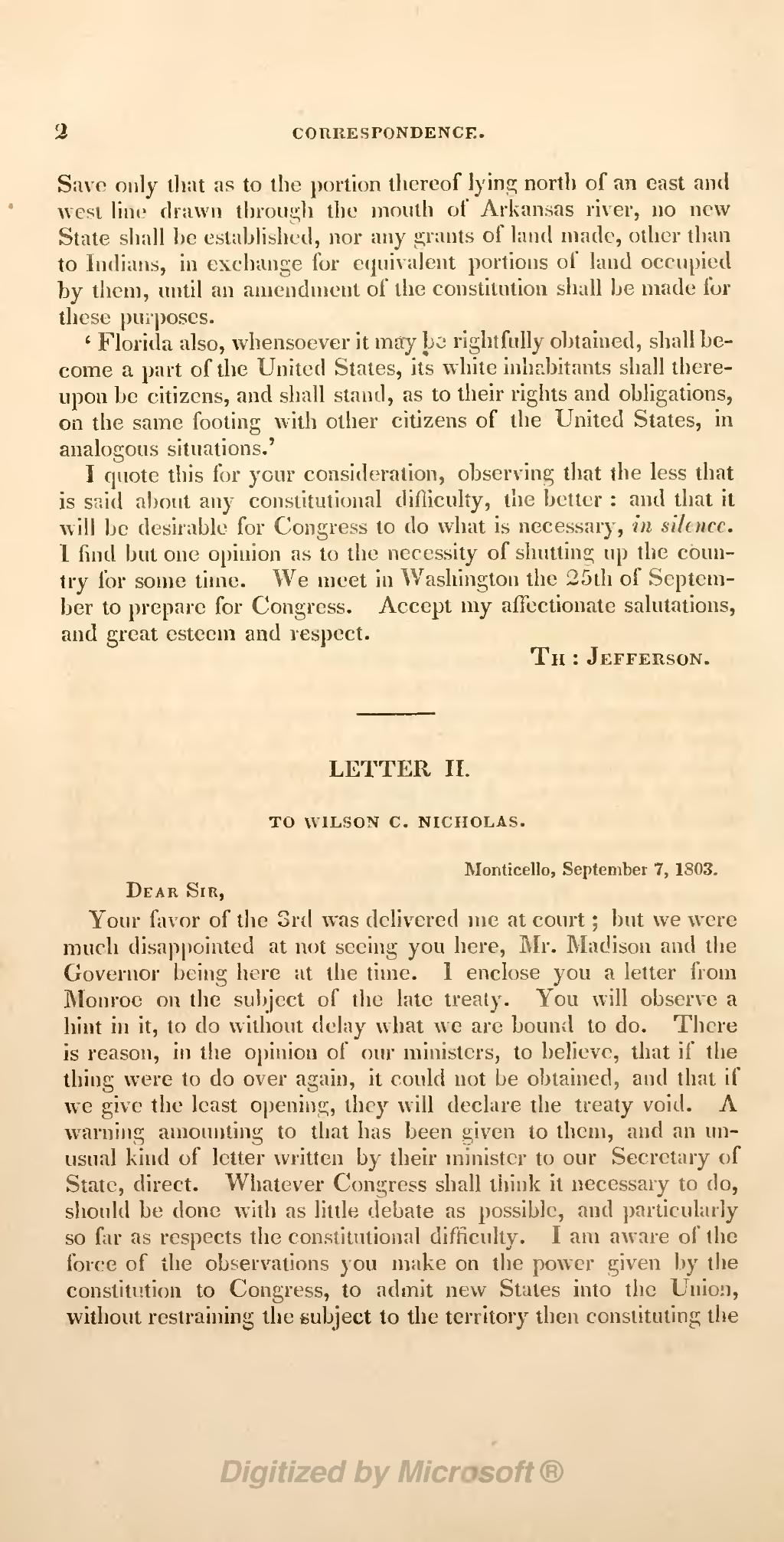3 CORRESPONDENCE.
Save only that as to the portion thereof lying north of an east and west line drawn through the mouth of Arkansas river, no new State shall he estahlished, nor any grants of land made, other than to Indians, in exehange for equivalent portions of land occupied by them, until an amendment of the constitution shall be made for these purposes.
' Florida also, whensoever it m3j bo rightfully obtained, shall be- come a part of the United States, its white inhabitants shall tbere- upon be citizens, and shall stand, as to their rights and obligations, on the same footing with other citizens of the United States, in analogous situations.'
I quote this for your consideration, observing that the less diat is said about any constitutional difficulty, the better : and that it will be desirable for Congress to do what is necessary, in silence. I find but one opinion as to the necessity of shutting up the coun- try for some time. We meet in Washington the 25th of Septem- ber to prepare for Congress. Accept my affectionate salutations, and great esteem and respect.
Th : Jefferson.
��LETTER II.
TO WILSON C. NICHOLAS.
Monticello, September 7, 1803. Dear Sir,
Your favor of the 3rd was delivered me at court ; but we were much disappointed at not seeing you here, Mr. Madison and the Governor being here at the time. 1 enclose you a letter from Monroe on the subject of the late treaty. You will observe a hint in it, to do without delay what we are bound to do. There is reason, in the opinion of our ministers, to believe, that if the thing were to do over again, it could not be obtained, and that if we give the least opening, they will declare the treaty void. A warning amounting to that has been given to them, and an un- usual kind of letter written by their minister to our Secretary of State, direct. Whatever Congress shaU think it necessary to do, should be done with as little debate as possible, and pardcularly so far as respects the constitutional difficulty. I am aware of the force of the observations you make on the power given by the constitution to Congress, to admit new States into the Union, without restraining the subject to the territory then constituting the
�� �
